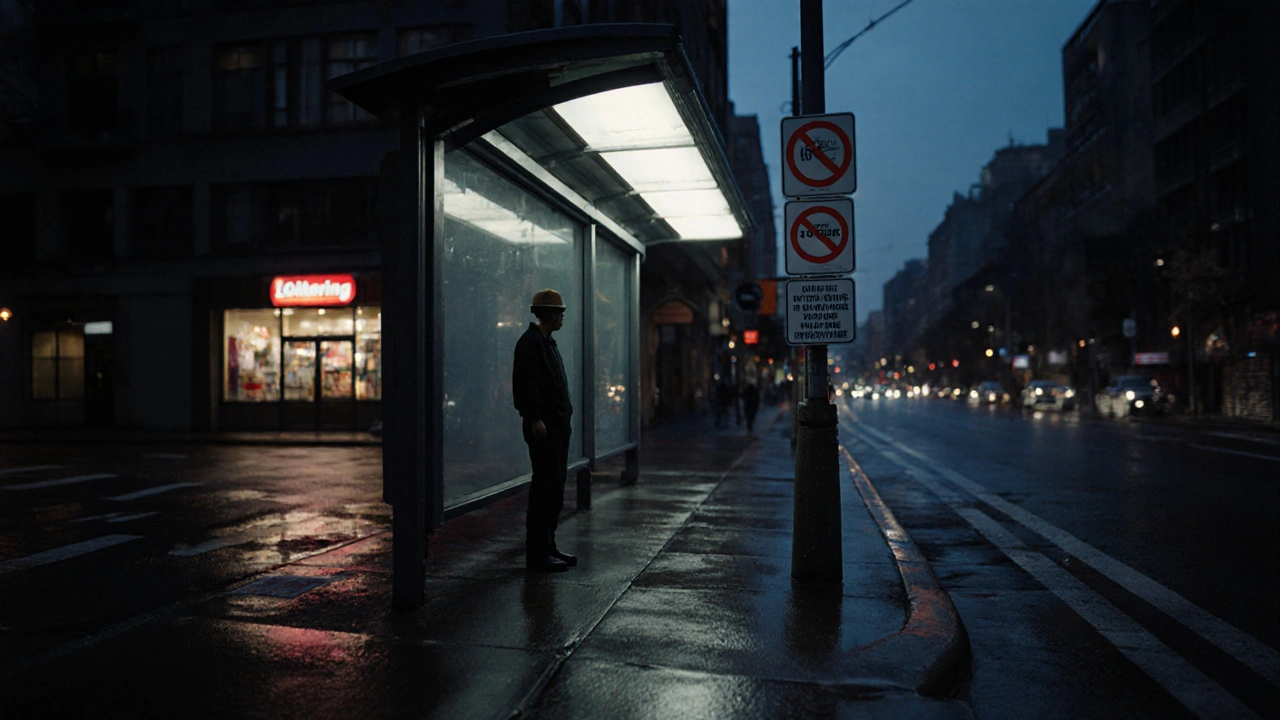Loitering Laws: What You Need to Know About Public Space Rules in the UK
When police say you're loitering, remaining in a public place without clear purpose, often under suspicion of illegal activity. Also known as suspicious behavior, it's not a crime on its own—but it’s used as a tool to control who gets to be where. In the UK, loitering laws aren’t written as standalone offenses. Instead, they’re pulled from older statutes like the 1824 Vagrancy Act and modern tools like Public Space Protection Orders (PSPOs). These let councils and police tell people to move along—even if they’re not breaking any other law.
That’s why sex workers, people who exchange companionship or sexual services for money, often targeted under vague public order rules are disproportionately affected. A person waiting for a client, sitting on a bench, or even standing near a known pickup spot can be told they’re loitering. The same rules get used to clear out homeless people, teens hanging out after dark, or street vendors without permits. It’s not about safety—it’s about who looks like they belong.
PSPOs, local rules created by councils to ban certain behaviors in public areas have become the go-to tool. In cities like Manchester, Brighton, and London, you might see signs saying "No loitering," "No soliciting," or "No waiting for clients." Break them, and you could get fined or even arrested under anti-social behavior laws. But here’s the thing: you don’t have to leave just because someone in uniform tells you to. You have the right to ask why, and you don’t have to answer questions unless you’re under arrest.
Police don’t need proof you’re doing anything illegal to use loitering as a reason to approach you. They just need to say they suspect it. That’s why documentation matters. If you’ve been told to move along before, write down the date, time, officer’s badge number, and what was said. That’s not just advice—it’s protection. Tools like SafetyPin and voice recorders help people build a record when they’re targeted repeatedly. This isn’t paranoia. It’s how people protect themselves when the system doesn’t.
And it’s not just about sex work. These laws touch everyone. A mother waiting for her kid after school. A guy sleeping in his car because he lost his job. A person with mental health struggles sitting quietly on a bench. All of them can be caught in the same net. The real question isn’t whether you’re breaking the law—it’s whether the law is being used fairly.
Some councils have started to scrap PSPOs after public pressure. Others still use them heavily. What hasn’t changed is the pattern: those with the least power get pushed out first. Knowing your rights won’t stop every unfair stop—but it gives you something to stand on. You’re not required to explain yourself. You’re not required to move unless you’re trespassing or causing a clear obstruction. And if you’re stopped, you have the right to stay calm, stay silent, and ask for legal help.
Below, you’ll find real stories and practical guides from people who’ve been caught in these systems. Some explain how to document police encounters. Others show how to challenge unfair PSPOs. A few detail how medical and tour escort services navigate these rules to keep clients safe. There’s no magic fix—but there’s power in knowing what’s real, what’s legal, and who’s really being targeted.

- Oct, 31 2025
- 0 Comments
Loitering and Prostitution-Free Zones: How Local Laws Target Sex Workers
Loitering and prostitution-free zones are used to push sex workers out of public spaces, increasing their risk of violence and arrest. These laws don’t improve safety-they make survival harder.
read more